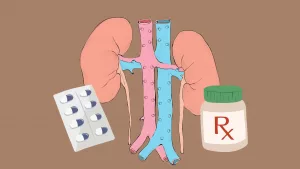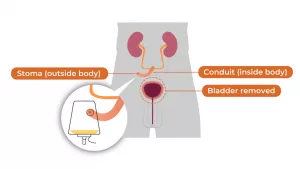A urine pH test measures how acidic or alkaline your urine is. Values that fall too high or too low can point to a variety of health concerns. Based on the findings, you may be advised to alter lifestyle habits or receive appropriate medical care.
Put simply, urine pH offers a snapshot of your overall health and supplies clinicians with useful hints about bodily processes. Below, we’ll explain what constitutes a normal urine pH range, when testing is recommended, and how the test is carried out.

What is a normal urine pH?
Neutral pH is 7.0. A typical urine specimen measures around 6.0, though normal urine pH can vary from about 4.5 to 8.0.
Higher readings denote more alkaline (basic) urine. Lower readings indicate more acidic urine.
Why might I need a urine pH test?
Kidney stones are more likely to form in environments that are strongly acidic or strongly alkaline, so a clinician may check urine pH to assess your risk of developing stones. These small mineral deposits can collect in the kidneys and cause pain by blocking the flow of urine through the urinary tract.
Certain drugs can also alter urine pH. A provider may order this test to evaluate whether medications are making your urine excessively acidic or alkaline.
The urine pH can additionally guide which medication is most appropriate when treating a urinary tract infection (UTI).
How should I prepare for the urine pH test?
Before testing, your clinician might ask you to stop taking specific medicines or supplements that affect urine pH. Examples include:
- acetazolamide, used for glaucoma, epilepsy, and other conditions
- ammonium chloride, found in some cough formulations
- methenamine mandelate, prescribed for UTIs
- potassium citrate (Urocit-K), used for gout and preventing kidney stones
- sodium bicarbonate (baking soda), used for heartburn relief
- thiazide diuretics, prescribed for high blood pressure and to lower stroke and heart attack risk
Your diet also influences urine pH, and you want the test to reflect your usual state. The test helps the clinician identify the reasons for any pH shifts. Do not make dietary changes before the test unless your doctor instructs you to do so.
How is the urine pH test done?
Accurate results require a clean-catch urine specimen.
The clean-catch technique involves cleansing the genital area before urinating and collecting midstream urine. This reduces contamination from organisms that could alter the sample.
Your clinician will supply a container for the urine. Avoid touching the inside of the cup and ensure nothing other than urine enters the container to prevent contamination.
After collecting the midstream sample, hand the container to the medical staff. They will send it to the laboratory as soon as possible to secure precise results.
How are the results interpreted?
The laboratory measures your urine pH and reports the findings.
If your urine pH is lower than normal, it may create conditions favorable to certain types of kidney stones. Other conditions associated with an acidic urine environment include:
- acidosis
- diabetic ketoacidosis, when ketones accumulate in the body
- diarrhea
- dehydration
- starvation
Elevated urine pH might suggest:
- gastric suctioning (stomach pumping), which removes stomach acids
- pyloric obstruction, blocking the passage between the stomach and small intestine
- kidney failure
- renal tubular acidosis, where kidney damage impairs acid removal from the blood
- respiratory alkalosis, caused by imbalances in blood carbon dioxide and oxygen levels
- UTIs
- vomiting
Your eating habits also influence urine acidity. For instance, diets low in meat and high in fruits and vegetables tend to produce more alkaline urine, while diets rich in meat tend to yield more acidic urine.
What should I expect after the urine pH test?
There are no known risks associated with the urine pH test. You can generally resume normal activities immediately afterward.
If your urine pH is abnormally high or low, your clinician may suggest dietary adjustments or other measures to restore a healthier balance.

























Leave a Reply
You must be logged in to post a comment.